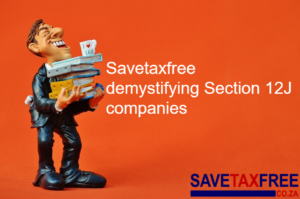Thinking of retiring abroad? Check out the pros & cons of international retirement funds
Related Articles
Nonhlanhla Kunene
Under a different political and economic climate, South Africa’s exit from its technical recession should have, and perhaps would have, been received with a tinge of hope and glimmer of renewed optimism.
Instead, the news came and went in what seemed to be a genuine non-event against the backdrop of corruption scandals and political infighting. It did little to quell investors’ appetite for international exposure that is increasing amidst a backdrop of record unemployment, public debt of R2-trillion and government expenditure that exceeds GDP.
SA simply cannot afford any further shocks to the economy, but there are many risks.
For example, another drought of similar proportions to that experienced about a year ago would mean that agriculture would no longer be able to contribute to the economy as it is has done recently, says Andrew Rissik, managing director of wealth managers at Sable International. “Our GDP is influenced by exports and agriculture plays a big role there, but it isn’t really reliable given all the external factors influencing production, which are often beyond anybody’s control.”
Rissik believes that things in SA are going to get a bit more uncomfortable before they get better, which he feels is part of the progress of any young democracy. “What’s worrying, however, is government spending. The reality is the government hasn’t delivered for the marginalised, hence all the social unrest which seems to be on the increase.”
To create more confidence, Rissik says the government needs to put into place policies to attract investments, particularly in sectors such as mining
But what does the economic uncertainty mean for your investments in the long term, particularly one’s ability to retire comfortably on a rand-based investment?
Rissik says although our SA’s economic climate is more uncertain than most other economies, he wouldn’t suggest investing only in global products, but rather to use them for diversification and as a rand hedge. How you do this will depends on your lifestyle and future goals. For instance, if you plan to retire in South Africa then your South African investments should be fine. However, should you plan to retire abroad or do a lot of travelling, a rand-denominated fund may not be the best option.
For those with a more global outlook to retirement, Coreen van der Merwe, managing director at Sovereign Trust, suggests those who can afford it should consider contributing to an international pension or retirement plan in a tax neutral jurisdiction, where the funds can grow in a strong currency such as the US dollar, pound or euro. “There are a few jurisdictions which do not levy tax on retirement products on condition that the member does not become tax resident there.”
Factors to consider before putting money offshore
Van der Merwe believes the following needs to be considered before investing in a foreign product:
- Whether or not it is a regulated product;
- The fees involved – of the fund and the financial advisor;
- Restrictions placed on accessing the funds – this is often age-related and might be linked to UK GAD rates. The latter is applicable to qualified non-UK pension schemes which are often used by South African tax residents who are still UK domiciled (in the UK there is a difference between tax residency and domicile); and
- The tax consequences, both locally and offshore.
Knowing what’s out there is important, says Rissik, and investors need to understand that returns will generally be lower due to higher fees, which will have an impact on how comfortably you’re able to retire.
Tax implications
Van der Merwe believes an offshore retirement option has both pros and cons. The pros include having a retirement plan in a strong and stable currency while your pension is based in a stable jurisdiction with no political or legislative uncertainty. “There is also usually no income or capital gains tax and no estate duty levied in some tax neutral jurisdictions, and you get access to a much wider investment environment than in South Africa.”
The negatives, however, include the higher fees. Because of these, a certain minimum would need to be invested in an international pension before it makes financial sense to invest abroad.
With all the options available, where does one even start? What would be a good starting point for investors with little or no offshore exposure?
Offering an alternative perspective, Stanlib’s retail investing manager, Paul Hansen, says there is an array of rand-based offshore funds that could serve as a good starting point for those wishing to explore this avenue. “You can choose to invest through a financial advisor, which we prefer, because you do need a financial needs analysis and expert advice on what risk profile and which funds make sense for you.”
Alternatively, he says those who are sufficiently confident in their ability to assess their own needs can invest in these funds with no upfront cost. With advisors, however, investors are able to negotiate upfront costs.
Hansen adds that the funds are not only liquid, which means investors can sell at no cost and receive the proceeds in a matter of days, but there is also no limit on the amount one can invest. “We have an array of options including a US dollar cash fund, which invests in a money market in US dollars, a global bond fund, a global balanced cautious fund, a global balanced fund, a global listed property fund, a global equity fund and a European equity fund.
“There are also other alternatives. If you open a stockbroking account you can buy exchange-traded funds (ETFs). These are typically indices of various offshore markets, such as the European Euro Stoxx 50 Index, the US S&P 500 Index, the Japanese Nikkei Index, the MSCI World Index etc. You do pay a brokerage fee to buy and to sell such funds, just like you would for an ordinary share.”
Rissik says finding a company that specialises in offshore investments and meeting with your local tax and retirement advisor is a good starting point.
“South Africans like listening to international advisors and are very trusting. Often you find that they’re not really aware of the tax implications in our country, so before you send money offshore, you need to be sure of the tax implications in both countries.”






